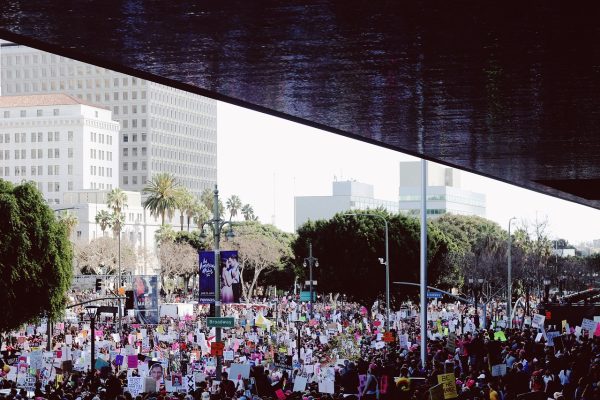This is a sequel to the Lament of the Twelve Sisters. It was written for the full moon festival of Tu b’Av, a love and dancing holiday that comes six days after Tisha b’Av, the anniversary of the Temple’s destruction.
R. Shimon ben Gamliel said: The Israelites had no greater holidays than the fifteenth of Av and the Day of Atonement, on which occasions the maidens of Israel used to go out in white garments, borrowed so as not to put to shame one who didn’t have a white garment. These garments were dipped in a ritual bath to purify them, and in them the maidens of Israel would go out and dance in the vineyards. The men would go there, and the maidens would say: ‘Young man, lift up your eyes and see what you will select…’” —Babylonian Talmud, Taanit 31a
With each of the sons of Jacob was born a twin sister. —Rashi
On Tu b’Av, the twelve ancestor-sisters gather to dance. On other days it is the Maiden who leaps on the hills and runs circles in the orchards, but on this day all the sisters come to the vineyards of Shiloh to celebrate. On this day, the sisters share their joy with one another and all creatures.
Adar, the Fool, is playing her pipe and leading the children all through the streets and squares, each one with an instrument or a song to share. She is reminding all those who have lost their way that it is possible to find one’s innocence again. And she is taking the children on ahead, for theirs is the future, and their running will bring us to gates and doors we do not know.
Shevat the Lover, is dancing at the Heart of the Universe, and her Beloved is entwining with her as if they are the grapevines. All who see them are transfixed. In an instant, Shevat sets mystics, devotees, and poets afire with love. All who hear her voice are filled with a radiant oneness. All who see her throw away everything to follow her and watch her dance.
Tevet the Seeker has come home. Maybe it is a temple in the mountains she has come to, or the gate-shrine of her own beloved city, or maybe it is the porch of her mother’s house. It does not matter where she is. She is home, and that is all she needs to know. She leaves her begging bowl and puts on the white dress the Shrinekeeper left for her. She goes in to get the embrace she has been wanting during all those long journeys.
At the center of the vineyard, wild-haired women and men are dancing in ecstatic trance. Around them are the spirits of the ancestors, who love to be among the joyful living. The Prophetess and the Shamaness have switched dresses, and no one knows what is past and what is future, what is now and what is forever. Now and then someone whispers in the ear of Kislev, the Shamaness—maybe a spirit, maybe a living person, maybe a voice from the Messianic age. She puts the words into her dance. There will be time for books later.
Marcheshvan, the Mourning Woman, is telling a sad story of passion and eternal love. Even though it makes everyone cry, everyone wants to hear the story over and over. Though on all other days she cannot be comforted for the suffering of the world, today her sorrow is lessened, for she knows that all the suffering on earth cannot quench love. At the height of the story, the Mourning Woman looks up and sees the one she most wants to see.
Love and violence share the same world. Long ago, this festival was marred by violence toward the women dancing. So today, Tishrei the Warrior-Queen steps forward with her companions and forms a circle around the revelers. They will stand guard all night and all day, until the last straggler goes home to bed. But around midnight, for a moment, Tishrei steps into the center of the circle and performs the most beautiful sword dance ever seen. When she leaves the circle, the awed farmers begin beating their swords into plowshares.
The Shrinekeeper is treading the grapes. Elul, who watches over sacred space, has let down her red hair, and borrowed a white dress from the Lover. Her feet are stained with the juice of the season as she dances each grape into a dark red ocean. She is loving the earth, breaking its body into the ecstasy of merging. On every other day, she pours out water for the pilgrims and washes their feet, but today she is pouring out the blood of the harvest, and the deep is rising in all the worlds.
Av the Wise Woman is moving through the crowd with her staff, and all show her reverence. She is matchmaking. She knows which lover needs to meet with whom, and she also knows which person on a train platform needs to meet an old friend, and which desperate person needs to find which photograph, and also she knows to send the child a dream just before a parent must draw the last breath. She presides over all encounters in the world, over all moments when meeting is revelation.
Mother Tammuz cannot hear the music. She is looking into the eyes of a single child. For her, this is the dance of the tree of life, and the finding of perfect peace. She knows that one day the infant will learn to say “Mama,” and the seed of love, love’s possibility, will be reborn. She knows this love will be betrayed, and yet it will also remain true and perfect, as real as the soil and the sea.
The drums are sounding, and the dancers’ feet pound on the earth. The prophetess Sivan is pounding the drum, a drum the size of the moon. Sound comes from the place of nothingness: from the drumhead, being arises again and again. Sivan’s braid has come undone, and the fabric of things also comes undone, and that which was not possible becomes possible. Sivan is pounding the anvil of time, and making new shapes for love.
Iyar the midwife is throwing pots and blowing glass vases. She is weaving baskets and she is painting wooden boxes. She is giving away these containers to everyone, crying: “Fill them! Fill them!” Iyar is slurring her words. She is drunk on the ether of the grape harvest. Creativity runs in her veins and arteries; she cannot stand because of the glorious weight of it. All the babies she has delivered pass before her eyes. She curls up on the ground and laughs herself to sleep.
And the Maiden, Nisan, is dancing. She is not doing anything but dancing. She does not worry about how she looks or who she will meet or what her mother thinks. She does not know how old she is or how much she weighs or whether she is talented or what her net worth might be. With crocuses and roses in her hair, she is dancing, she is dancing in perfect presence, and no one in the world does not want to be her. In fact, everyone is her, and on this one night of the year, they know it.
On Tu b’Av the twelve ancestor-sisters gather to dance, and arm in arm, the Maiden and the Lover lead them. The Weaver, their Mother, does not dance. She is the dance. Some say her name is Aleph, and some say it is Bet. As the light fades and the dancers break into small circles and pairs and lone figures out for an evening walk, the Weaver passes into her thread, and becomes color and light. She connects the atoms and the galaxies. The year’s end will come, and the year’s beginning, and the Weaver will go on becoming herself. She is so beautiful and rare and vulnerable that the dancers weep even as they overflow with joy for the loveliness of it all.













One Response
I really appreciate this, because it hits home both in the stages of life (many of which are very relatable), but also in illuminating the sisterhood all around us. That made me feel much more connected at a time I struggled to feel like I had a place. Thank you so much for this.